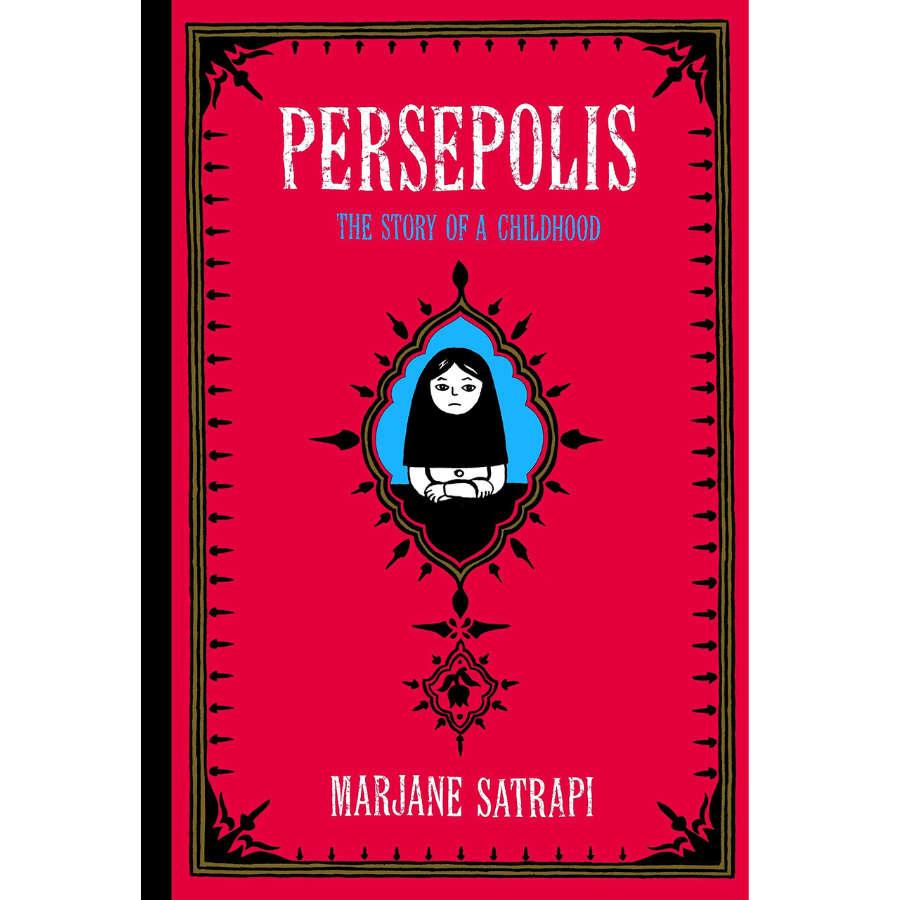Marjane Satrapi’s Persepolis is a graphic memoir that shares her life story before and after the 1979 Iranian Revolution.
Born in 1969, a decade before the revolution and the Islamic regime overtook the country, Satrapi recounts her life growing up pre- and post-revolution. Satrapi’s early childhood consisted of classes in a bilingual French school, family trips to the Caspian sea, and an exciting life filled with parties, teenagehood, and exploring Iran. When the revolution happened, everything changed. Satrapi was forced to endure war as a child, watch relationships around her crumble and, most devastating of all, experience death and grief as a young child. She watched the role models and idols around her get arrested or murdered. It wasn’t fair for Satrapi to experience this — it wasn’t fair for any Iranian going through this.
This book hits differently for me. I’m an Iranian-American with two parents who grew up similarly to Satrapi. They both immigrated to the United States pre-revolution and could not move back to Iran due to the dangerous conditions. I’m a first-generation American but have always felt a longing for Iran, even if my vision of the country is a romanticized illusion. The most difficult part about Iran is how much people want it to be this beautiful democracy that welcomes its people back. Unfortunately, the Iranian government has not made it so.
A lot of Iranians feel this way. They hear stories of what life was like before the revolution: the lax laws, the beautiful culture, and the incredible atmosphere. Then it became dark. It became terrifying. It became violent. But the energy and perseverance of the Iranian people never subsided. That’s what you feel throughout Persepolis. You can see the ferocity of Satrapi and her family in the novel. I can see that in my family, too. It’s a beautiful and uncanny parallel. It made me smile as I read the book.
Learning about Satrapi’s story was liberating. It made me feel so incredibly seen.
I haven’t experienced a fraction of the turmoil she did during the revolution, but I can feel her pain and relate to the sense of loss through her story. I loved reading it because it reminded me so much of my family (all the way down to the part where she discusses waxing her armpits; if you know, you know). Her family was supportive, understood the importance of education, and did everything they could to help their children. It made me grateful for my family and helped me understand how much Iranian parents sacrificed. All that Iranian families wanted was for their children to have a better life than what the post-Revolution life could offer. That included getting sent abroad for education, moving out of Iran altogether, or making sure their children had access to dual citizenship.
It was ~extra~ fun for me to read this book because of all of the hilarious and relatable scenes that made it feel like I was watching scenes from my own childhood. First, I related to Satrapi’s sense of self and independence that formed throughout her teenage years. Satrapi, despite the tyrannical rule of Iran, forged her own path through the corrupt regime. I loved reading through the parts of Satrapi’s life where she finds who she is through all the chaos that is the Islamic republic. She pushed back in school when she was forced to accept sexism. She discussed Iranian politics, war, and history with her family to make sure she never lost her knowledge of what was true before the Islamic republic. She always stayed close to her family and never forgot who she was, even when she moved out of Iran to Vienna.
The intergenerational trauma of Iranians is apparent throughout the book. Families have been fleeing from Iran for years. Whether because of the chaos of the 1979 Iranian revolution or the Iran-Iraq war that held many people hostage and destroyed both Iraqi and Iranian homes, Iranian history has been filled with war, poverty, and brutality. However, the tenacity of Iranians is tried and true.
Satrapi and her family didn’t give up when they faced war head-on; neither did my parents. Although life did not turn out the way both Satrapi and my family thought it would in their youth, there is one thing I can say: They never forgot where they came from, and they never will.


